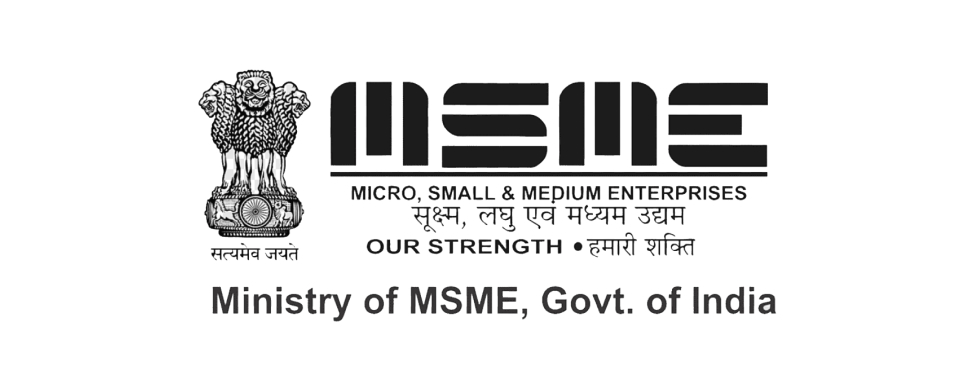Are you trying to drive more traffic to your website? If so, keyword research is an essential part of any successful SEO strategy. With the right keywords, you can increase your search engine rankings and attract more potential customers. But how do you find the right keywords? That’s where this guide comes in. We’ll show you the ultimate guide to performing keyword research for SEO. From understanding what keywords are to uncovering the best keywords for your website, this guide has it all. So let’s get started and learn how to perform effective keyword research for SEO!
What are keywords?
Keywords are the words or phrases that people use to search for information online. They are the building blocks of search engine optimization (SEO) and are crucial for helping your content appear at the top of search engine results pages (SERPs). Keywords can be broad or specific, and they should be selected with a goal in mind. In order to effectively use keywords for SEO, it’s important to understand how they work and why they matter. By choosing the right keywords, you can increase the visibility of your website and attract more visitors to your content.
Why are keywords important?
Keywords are a vital aspect of any successful SEO strategy. They are the phrases or words that people enter into search engines to find information about a specific topic or product. As such, keywords serve as a roadmap for both search engines and your audience, directing them towards your website and the content that is most relevant to their needs.
By including relevant keywords in your content, you increase the chances of your website appearing in search results for relevant queries. This helps attract organic traffic to your site, increasing your chances of converting visitors into customers or subscribers.
But it’s not just about increasing traffic. Effective use of keywords can also improve the overall user experience on your website. By creating targeted, informative content that incorporates the right keywords, you can offer your audience the information they are looking for in a way that is both easy to find and easy to read.
In summary, keywords are essential for attracting relevant traffic, improving the user experience, and ultimately achieving your business goals. By investing time and effort into effective keyword research, you can take your SEO efforts to the next level and see real, measurable results.
How to perform keyword research
Keyword research is the process of identifying and analyzing search terms that people use when they are looking for information, products, or services on search engines. Keyword research is a crucial part of any SEO strategy as it helps you understand what your target audience is looking for and how to optimize your content to meet their needs.
Here are some steps to help you perform effective keyword research:
Start by brainstorming a list of words or phrases that are relevant to your business, products, or services. Put yourself in your target audience’s shoes and think about the search terms they might use to find your website.
2. Research your competition:
Look at your competitors’ websites and analyze the keywords they are using to optimize their content. This can give you insights into what is working in your industry.
3. Use keyword research tools:
Keyword research tools like Google Keyword Planner, Ahrefs, SEMrush, and Moz can help you identify keywords that are relevant to your business and have high search volume.
4. Analyze search intent:
When selecting keywords, it’s essential to understand the search intent behind them. Search intent refers to the reason behind a search query. Understanding search intent can help you create content that better meets your target audience’s needs.
5. Focus on long-tail keywords:
Long-tail keywords are longer phrases that are more specific and targeted. They typically have lower search volume but higher conversion rates because they are more relevant to the user’s search intent.
By performing effective keyword research, you can better optimize your website and content for search engines, improve your search rankings, and attract more relevant traffic to your website.
What are the best tools for keyword research?
Performing keyword research is a critical aspect of SEO, and choosing the right tools can make all the difference. Here are some of the best tools available to help you with your keyword research:
1. Google Keyword Planner: Google’s Keyword Planner is a great place to start your research. It helps you find new keywords and estimate their search volume, giving you an idea of the most popular keywords.
2. SEMrush: SEMrush is a paid tool that provides comprehensive keyword research features, including keyword difficulty analysis and organic search rankings.
3. Ahrefs: Ahrefs is another popular keyword research tool that provides an extensive database of keyword ideas and keyword difficulty analysis.
4. Moz Keyword Explorer: Moz Keyword Explorer is a great tool that offers an extensive database of keyword ideas, keyword difficulty analysis, and SERP analysis.
5. AnswerThePublic: AnswerThePublic is a free tool that helps you find long-tail keyword ideas. It provides a list of questions and phrases that people are searching for related to a particular keyword.
6. Keyword Tool: Keyword Tool is a free tool that offers a vast database of long-tail keyword ideas and provides related search terms.
When it comes to keyword research, it is best to use a combination of these tools to get the most accurate data possible. These tools can help you understand your target audience’s search intent, find the best keywords to target, and optimize your content for better search engine rankings.
How to use keywords in your content
Now that you’ve conducted keyword research and have a list of targeted keywords, it’s time to use them in your content. But before you start adding them everywhere, it’s important to use them strategically.
1. Use your primary keyword in the title: The title of your page or blog post is the most important place to include your primary keyword. Make sure it accurately reflects what the content is about and catches the reader’s attention.
2. Use keywords in headings and subheadings: Use your secondary keywords in subheadings throughout your content to break up the text and make it more readable. This will also signal to search engines what your content is about.
3. Use keywords in the body of your content: Incorporate your targeted keywords into the body of your content naturally. Be careful not to overdo it and stuff too many keywords in, as this can negatively impact your rankings.
4. Use variations of your keywords: Don’t just use the same keyword over and over again. Use variations and synonyms to make your content sound more natural. This will also help capture long-tail keywords.
5. Use keywords in meta descriptions: A meta description is the snippet of text that appears below the page title in search results. Make sure your primary and secondary keywords appear in your meta description, as this will improve click-through rates.
By following these guidelines, you’ll be able to effectively use keywords in your content to improve your search engine rankings and attract more organic traffic to your website.
How to track your keyword ranking
Tracking your keyword ranking is crucial to understanding how your SEO efforts are performing. It allows you to monitor changes in your ranking and adjust your strategy accordingly. Here are some tips on how to track your keyword ranking effectively:
1. Use a reliable tracking tool:
There are various tracking tools available that can help you track your keyword ranking. Choose a tool that suits your needs and budget. Some popular tools include SEMrush, Ahrefs, and Moz.
2. Focus on specific keywords:
It’s important to track specific keywords rather than just general search engine rankings. Choose keywords that are relevant to your business and focus on them.
3. Monitor your ranking over time:
It’s important to track your ranking over time to see any trends or changes. This will help you to understand how your SEO efforts are performing and adjust your strategy accordingly.
4. Keep an eye on your competitors:
It’s essential to keep an eye on your competitors and monitor their keyword rankings as well. This will help you to understand their strategy and adjust yours accordingly.
5. Analyze your data:
Once you have gathered enough data, it’s essential to analyze it and draw meaningful insights. This will help you to understand which keywords are working and which ones need to be optimized.
Conclusion
Are you tired of struggling to get your website to rank higher on search engine results pages? Are you frustrated with the lack of traffic your website is generating? Look no further than Actovision SEO services.
Our team of experienced professionals specialize in search engine optimization, utilizing the latest strategies and techniques to ensure your website not only ranks higher but also generates quality traffic.
We understand that every website is unique and requires a personalized approach to SEO. That’s why we conduct a thorough analysis of your website to identify its strengths and weaknesses, enabling us to develop a customized SEO plan that addresses your specific needs.
We don’t just focus on getting your website to the top of search results; we also strive to improve the user experience and make sure your website is easily accessible and navigable. This, in turn, leads to increased conversions and revenue for your business.
With Actovision SEO services, you can trust that your website is in good hands. We are dedicated to providing exceptional service and ensuring your satisfaction every step of the way. Don’t wait any longer, let us help your website reach its full potential and get the attention it deserves.






